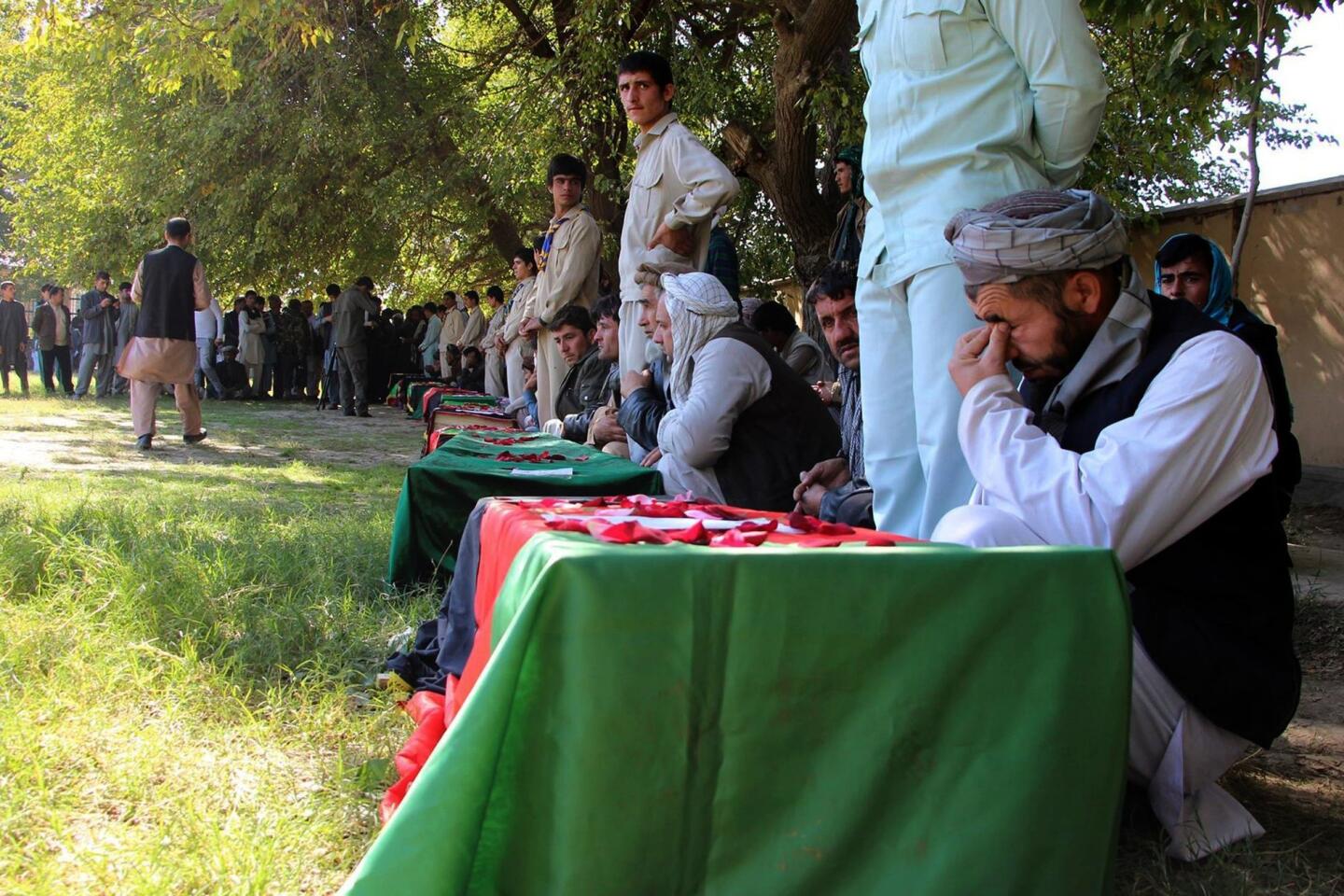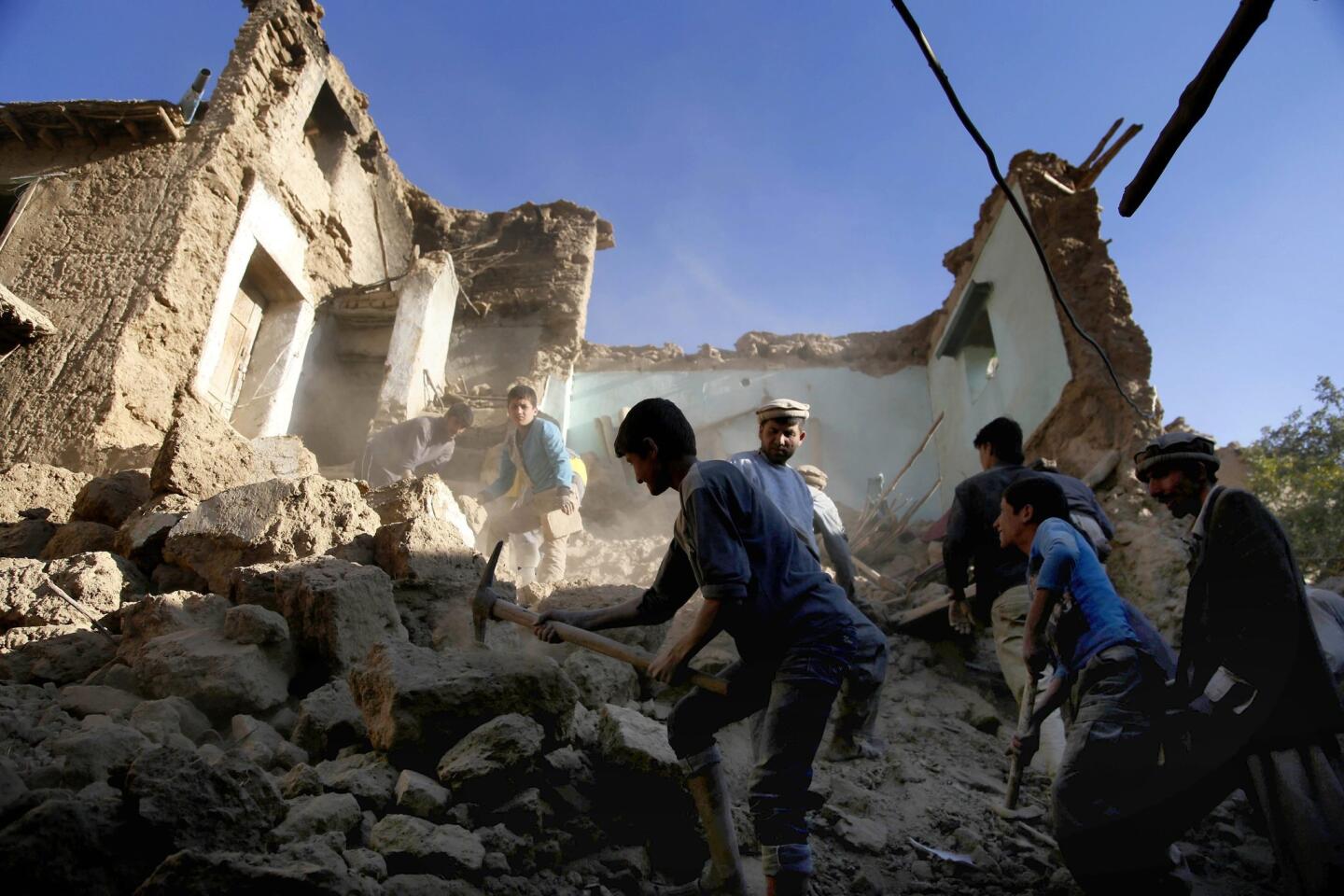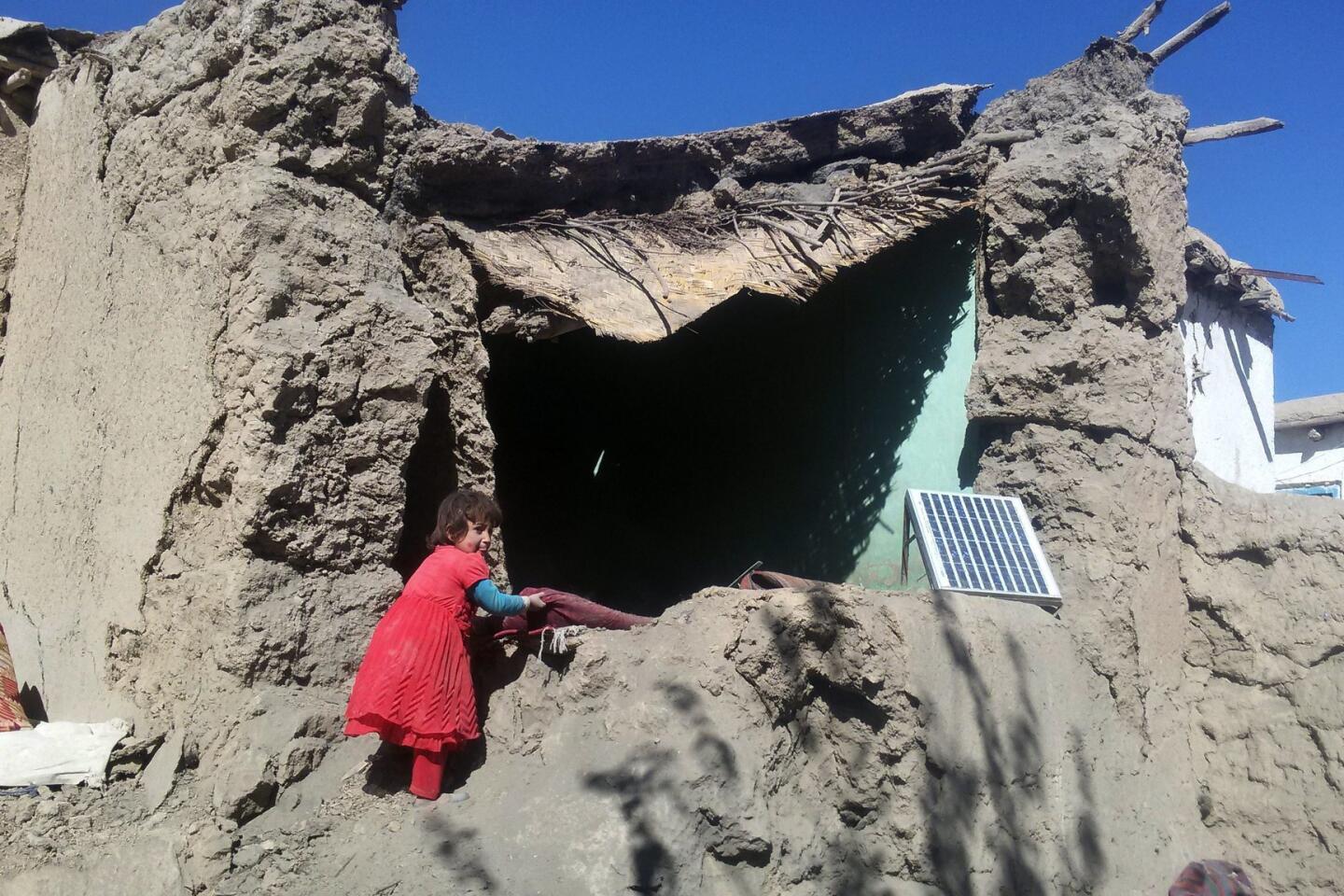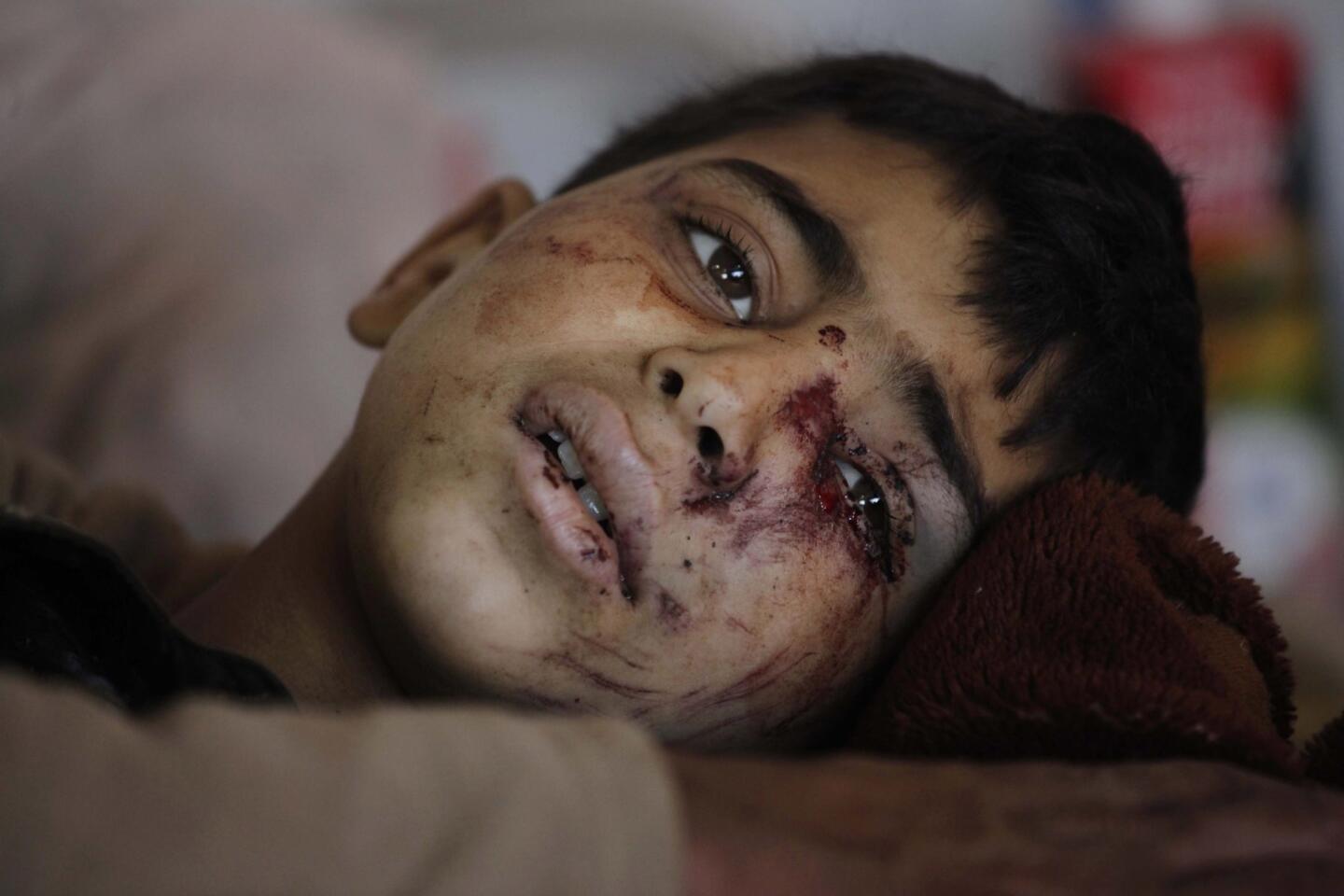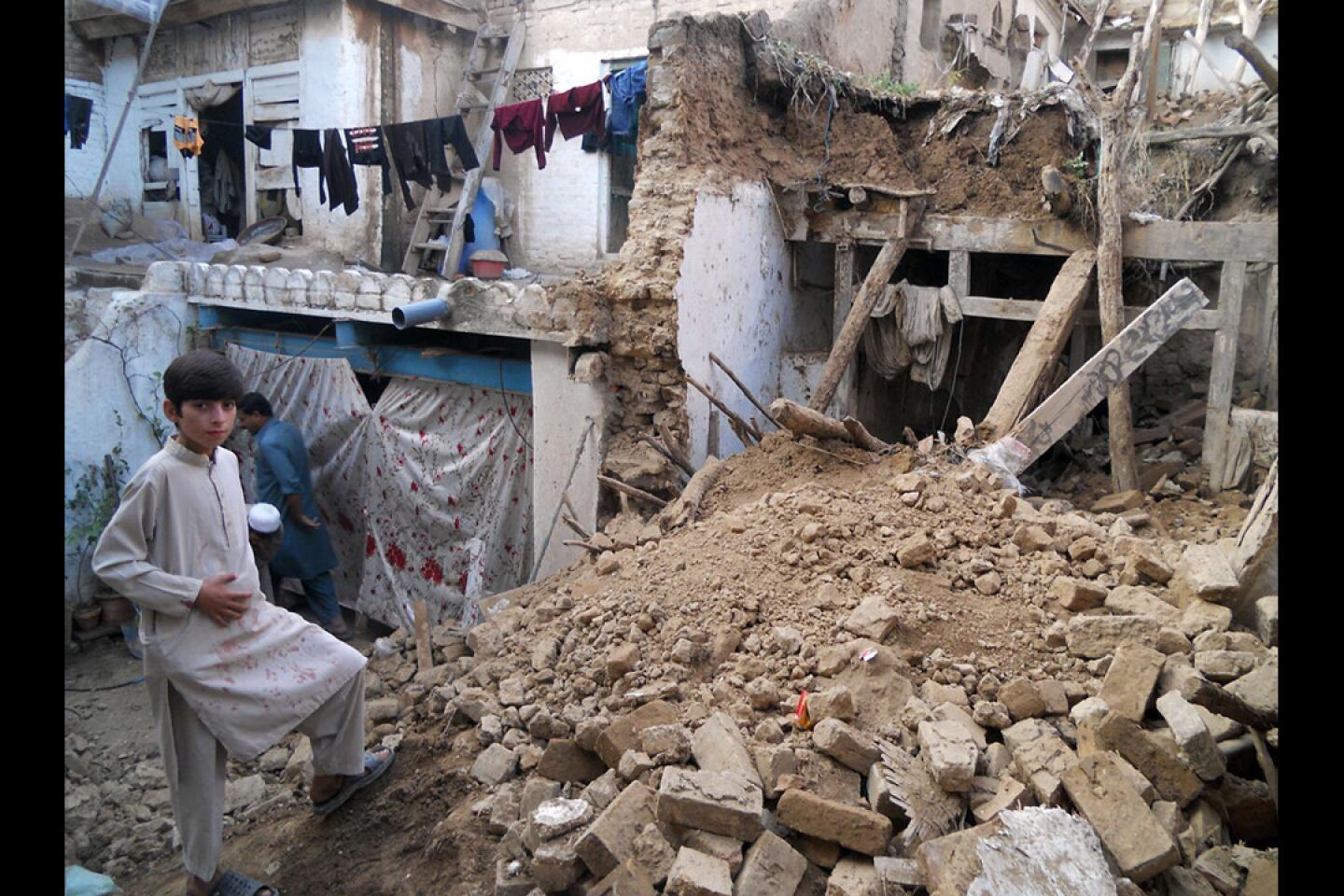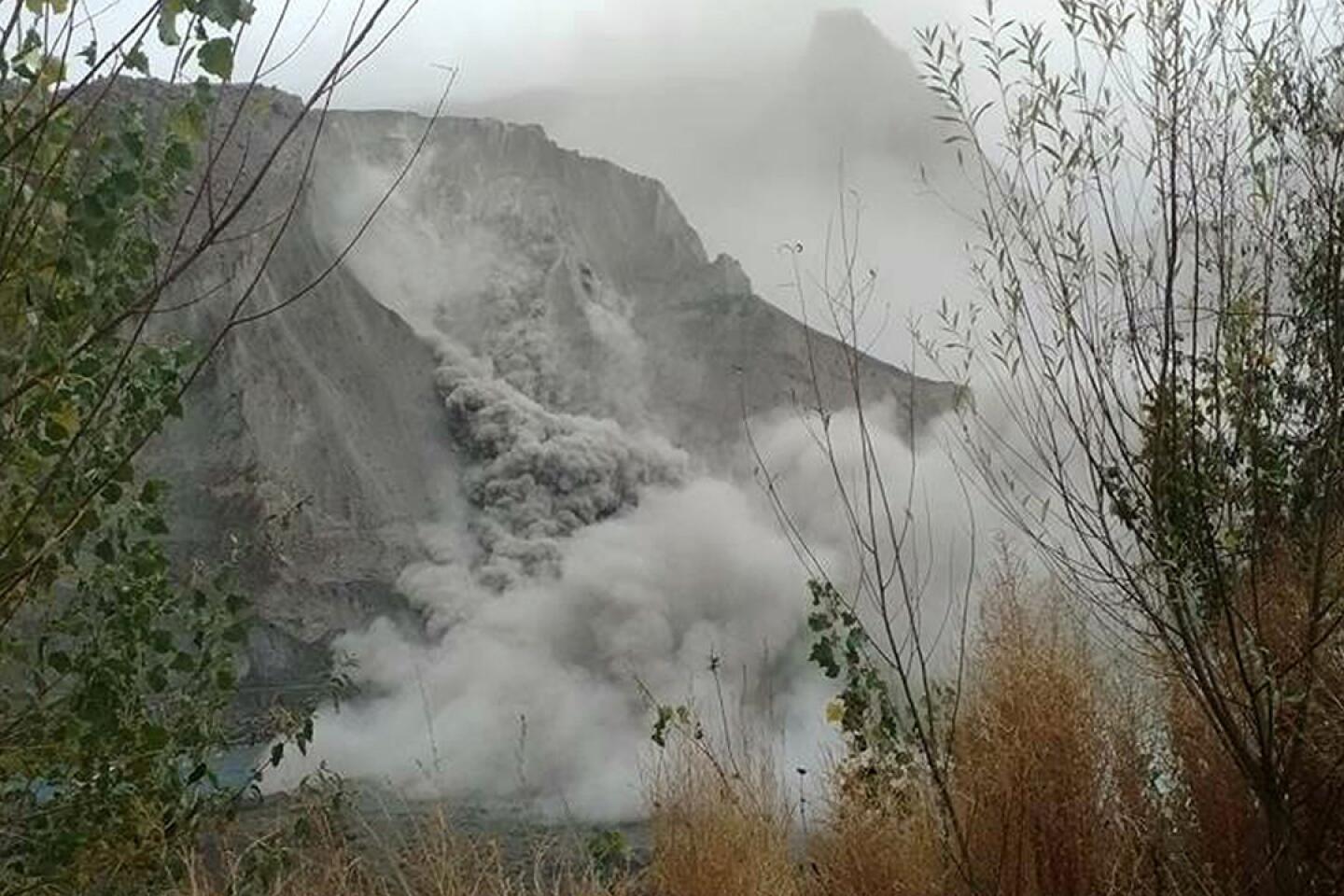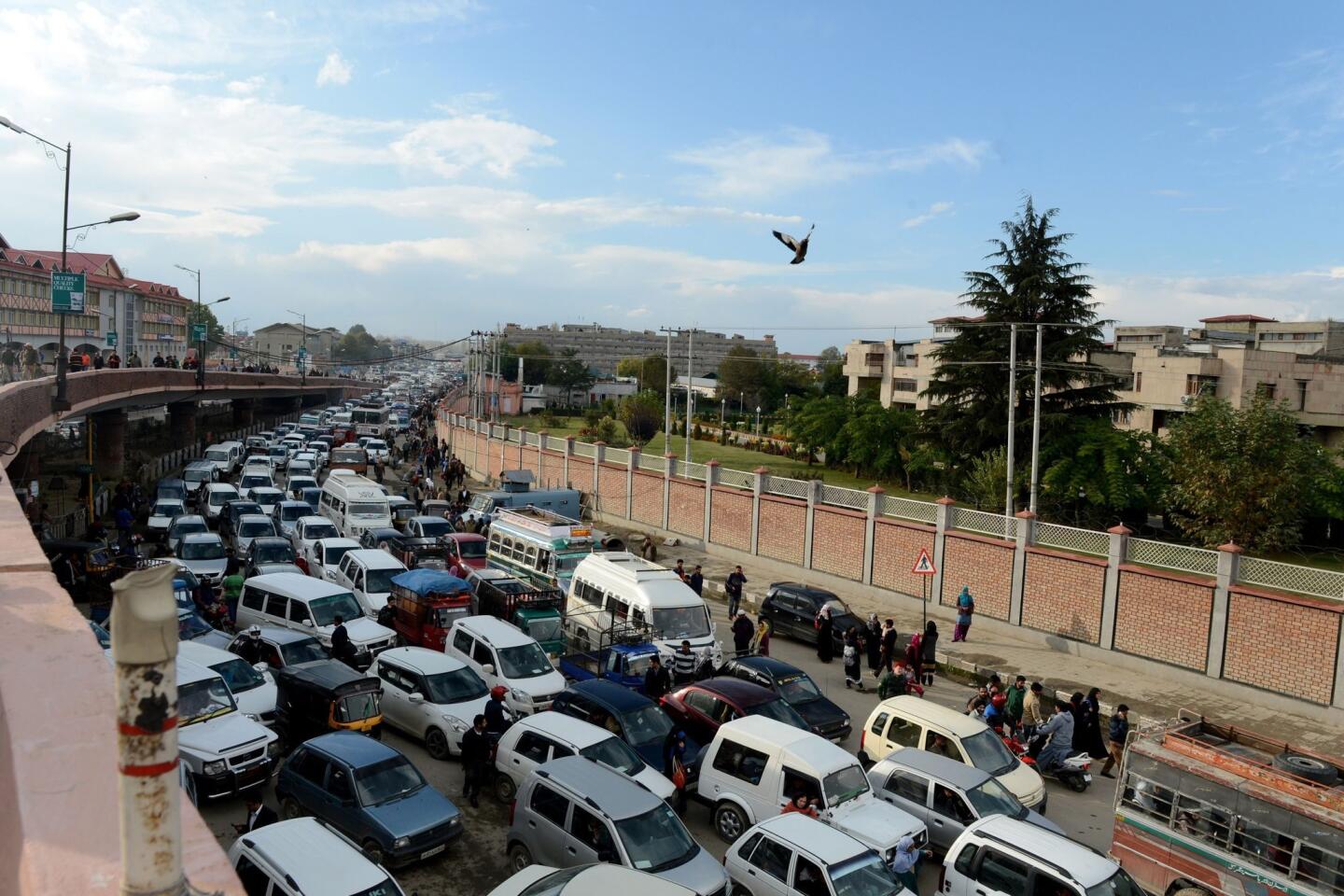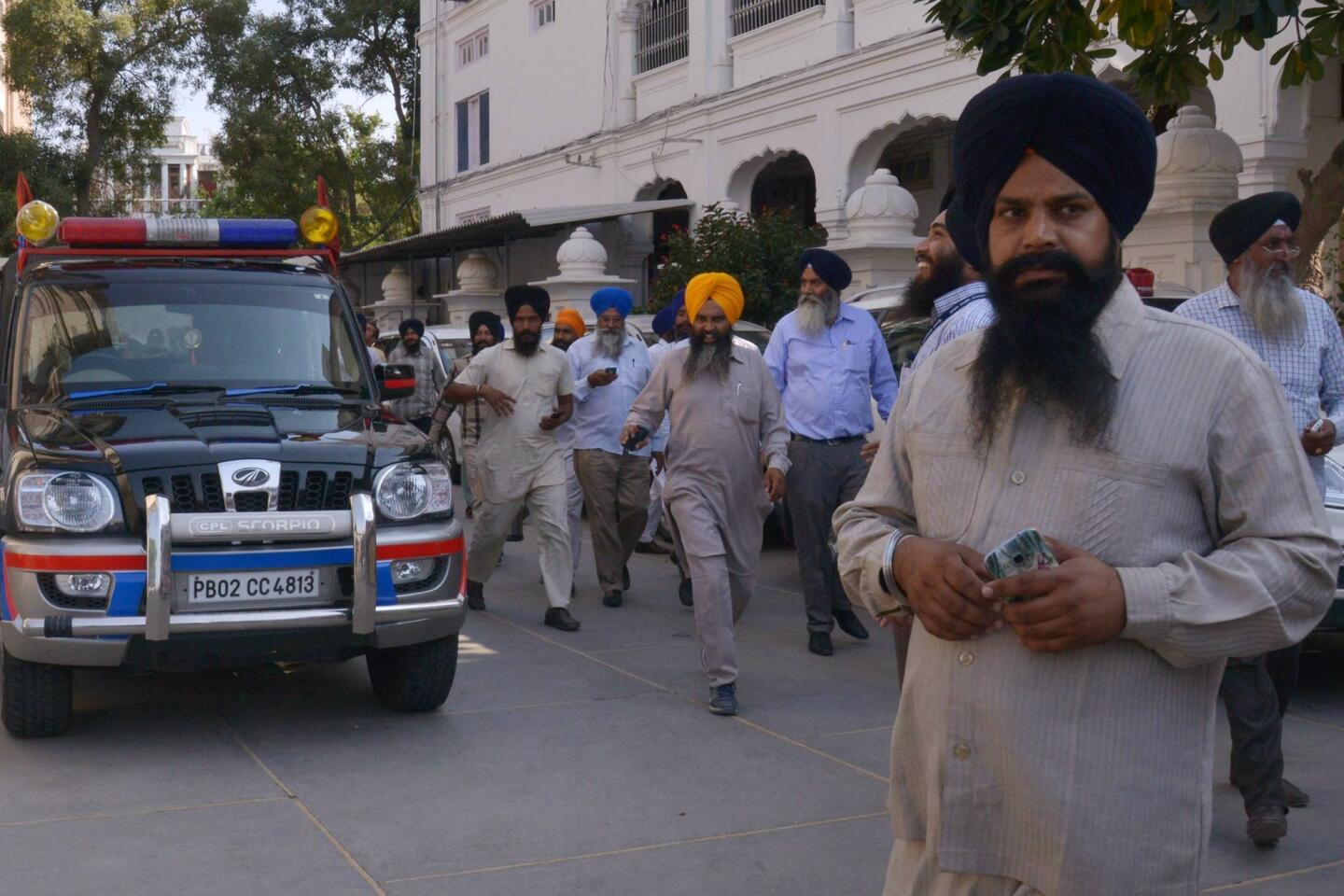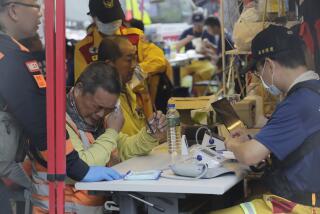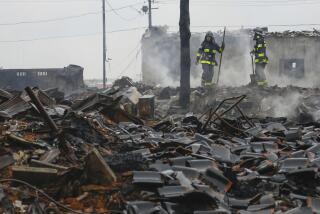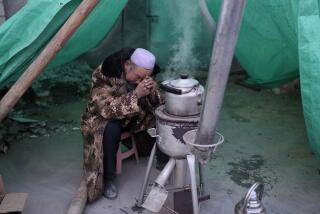âOh, God, I am dyingâ -- the anguish of quake survivors in Pakistan and Afghanistan
Reporting from Peshawar, Pakistan â Rizwan Ullah, an 8-year-old shepherd, was playing with his friend one moment. The next, his friend was no more, crushed by a boulder as it hurtled down the mountainside in the massive earthquake that shook their hamlet in distant northern Pakistan.
Rizwan was not spared, his left hand badly cut by the falling rock, his two legs fractured. Lying in a hospital bed here Tuesday, the boy cried out in pain to his uncle, âOh, God, I am dying.â
He was among the fortunate ones, his family having managed to load him into a pickup truck and bring him to Lady Reading Hospital in Peshawar, the provincial capital. In their village of Kalkot, in the remote mountain district of Kohistan, there are no doctors or health facilities, and roughly as many goats and sheep as people.The journey took nearly 24 hours over roads that were damaged or partially blocked by landslides triggered by Mondayâs magnitude 7.5 quake.
NEWSLETTER: Get the dayâs top headlines from Times Editor Davan Maharaj >>
Officials on Tuesday raised the death toll from the quake to more than 360 across Pakistan and Afghanistan, with the greatest number coming from here in Pakistanâs Khyber Pakhtukhwa province, where 202 people were killed. Another 1,500 were injured and nearly 4,000 homes destroyed in the province, disaster management authorities said, but the scope of the damage was still becoming clear.
Rescue teams were struggling to reach the epicenter of the quake, roughly 160 miles northeast of the Afghan capital, Kabul, in the province of Badakhshan. Afghan officials said they had confirmed at least 115 deaths and 538 injuries across nine provinces.
Pakistani military aircraft surveilled the rugged, sparsely populated Hindu Kush mountains that include villages, like Kalkot, some 200 miles north of Peshawar, that consist primarily of dwellings built on hillsides from stone and mud.
Ahmad Ullah, Rizwanâs uncle, said the homes of all 20 families in the village were damaged by landslides.
âWe do not know exactly the level of devastation in other villages of Kohistan, but the situation is alarming,â he said. All 500 sheep and goats in the village were killed, he said, which, if true, would leave families without their livelihoods.
Rizwan, who was expected to recover from his injuries, was carted off to the orthopedic unit to be fitted for a cast. But in contrast to a day earlier, when the hospital was jammed with patients in the immediate aftermath of the quake, the emergency ward was relatively calm -- suggesting that most victims were having difficulty traveling from far-flung areas.
Acting director Ghulam Subhani said the hospital was receiving patients from quake-hit districts and had treated more than 200 victims, including 34 who had suffered bone fractures or head injuries. Most patients were discharged after being treated for minor injuries, he said.
Other survivors who reached Peshawar complained about the lack of medical facilities and poor road conditions. They said rescue and relief efforts had not reached hilly areas of the province such as Malakand, which officials declared the hardest hit area in the province.
Residents described devastation in the Upper Dir district near Chitral, the Pakistani town closest to the epicenter. Hundreds of homes had collapsed and thousands of people were waiting for tents and other emergency supplies.
A Pakistani C-130 cargo plane carried seven tons of supplies, including 2,500 ready-to-eat meals and 1,000 tents, to Chitral, said Maj. Gen. Asim Bajwa, spokesman for the Pakistani armed forces. Thousands more meals and supplies were sent by road to the hard-hit district of Dir, where a relief camp was being set up for quake victims, and Pakistani troops were working to clear landslides along the high-altitude Karakoram Highway to speed the delivery of rations.
Khyber Pakhtunkhwa provincial spokesman Mushtaq Ghani said rescue teams had yet to reach all the affected areas but insisted the government had sufficient resources and did not seek international assistance. Prime Minister Nawaz Sharif chaired a high-level meeting in Islamabad before leaving for quake-affected areas.
Resident Sirajud Din, who spoke to the Los Angeles Times by phone, said no rescue teams had arrived in Pataow, a village in Upper Dir, where hundreds of houses had collapsed. People slept outdoors overnight because their homes were uninhabitable or they feared further aftershocks, he said.
âI did not see a single house intact in Pataow,â he said. âPeople need shelter because the temperature goes down [below freezing] in this remote valley.â
He pleaded with the Pakistani government to send basic supplies, especially tents to ward off the cold.
âChildren will die if the government does not send basic items to survivors,â he said.
Afghanistan has not requested international assistance either. Parts of northern Badakhshan province near the epicenter are under the control of the Afghan Taliban, raising questions about whether the insurgent group would cooperate with government relief efforts or those of international aid agencies, which it has targeted in recent years.
The group released a statement calling on Afghans and charity groups âto not hold back in providing shelter, food and medical supplies to the victims of this earthquake,â and ordered its fighters âto lend their complete help to the victims and facilitate those giving charity to the needy.â
The U.S. government expressed confidence in Afghanistanâs emergency response plan, which was developed with American assistance and includes stockpiling relief supplies in case of natural disasters. U.S. officials said they had not been asked for additional funding on top of the more than $94 million in humanitarian assistance the U.S. supplied to Afghanistan in the last fiscal year.
âThe response is being led by the Afghan government,â said the U.S. Agency for International Developmentâs Afghanistan director, Herbie Smith. âExisting national and provincial response teams are making sure assistance is properly targeted and reaches Afghans affected by this tragedy.â
Special correspondent Ali reported from Peshawar and staff writer Bengali from Mumbai, India. Special correspondent Ali M. Latifi in Kabul, Afghanistan, contributed to this report.
ALSO
Navy warship sails near Chinaâs man-made islands in the South China Sea
1 still missing after Canada whale-watching boat sinks, killing 5
Hereâs what archaeologists found in a warriorâs grave thatâs been untouched for 3,500 years
More to Read
Sign up for Essential California
The most important California stories and recommendations in your inbox every morning.
You may occasionally receive promotional content from the Los Angeles Times.
